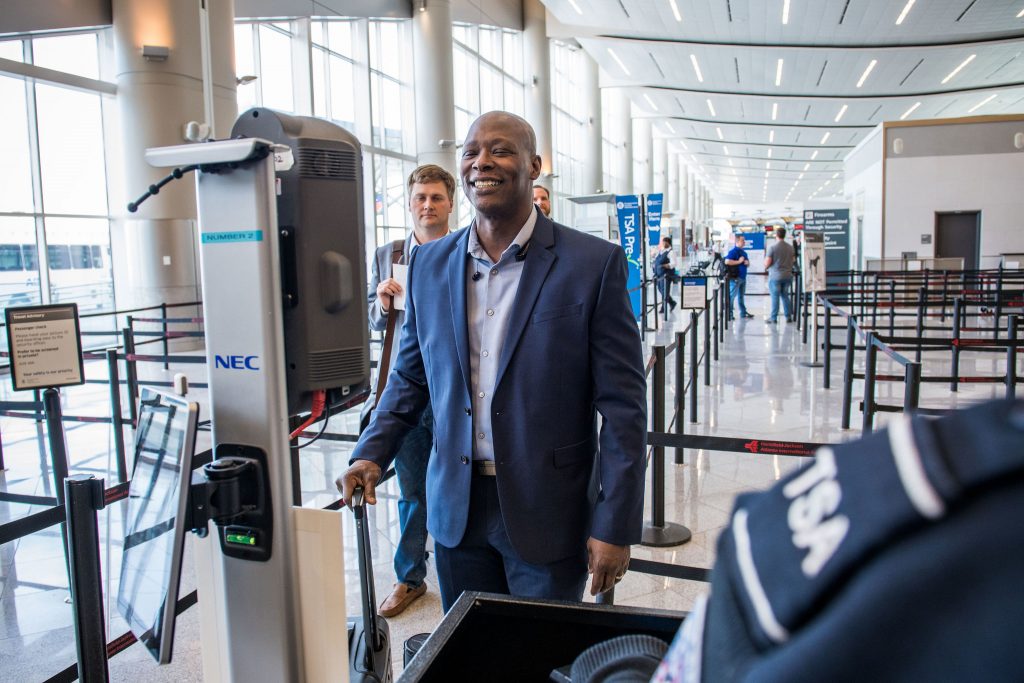
Delta Air Lines reveals their new biometric scanning technology at Hartsfield-Jackson International Airport in Atlanta, Ga. on Monday, November 19, 2018. (Photo by John Paul Van Wert/Rank Studios 2018)
Delta’s ‘Biometric’ Airport First U.S. Use of Facial Recognition
Working with the U.S. Customs and Border Protection Agency, Delta Airlines implemented facial recognition technology at the Hartsfield-Jackson Atlanta International Airport, the first in the nation to track fliers to international destinations, including on Aeromexico, Air France, KLM and Virgin Atlantic Airways. The company plans to expand the program to Detroit by July.
This is the first known use of AI to track travelers in airports around the world. China uses it to track pedestrians in its cities and mass transit.
“Delta’s successful launch of the first biometric terminal in the U.S. at the world’s busiest airport means we are designing the airport biometric experience blueprint for the industry,” said Gil West, Delta’s COO. “We’re removing the need for a customer checking a bag to present their passport up to four times per departure – which means we’re giving customers the option of moving through the airport with one less thing to worry about, while empowering our employees with more time for meaningful interactions with customers.”
While only 2% of 25,000 travelers have opted out of the Delta Airlines security program since its launch in October, it’s likely the program will expand internationally, based on assumptions from a story in Fast Company magazine. Already Dubai airport has a fully operational system.
The Fast Company weighed the pros and cons of such a system, pointing out that the benefits just might outweigh the potential abuses.
AI tech could Improve the boarding process and make travel more efficient by contacting fliers for lining up, for instance.
“A computer vision system with a dynamic comprehension of who’s at the gate and who’s not, the bags they have and the other people they’re traveling with, and even how these people physically move, can then bring those disparate data sets together to answer the question that matters most: How can we board everyone in the fastest way that never creates a line? The system would also coordinate communications with you and your fellow passengers in ways that are far more personalized than the class- and zone-based boarding routines used today,” writes Futurist Devin Liddell in the Fast Company article.
The perils of such a system is the potential for manipulation, such as diverting families with small children to a security checkpoint near toy stores or fast food restaurants or giving special online offers tailored to solo travelers, such as a two-for-one offer at an airport bar, Liddell writes.
Other benefits could be better suggestions for ground travel connections, electronic reminders of appropriate behavior in airports and in-flight and an improved overall experience.
AI is already shaping the travel industry through recommendation engines, chatbots and machine learning, but beyond efficiencies, it’s also helping airlines, travel services and hotels learn how to better serve customers.







Leave A Comment